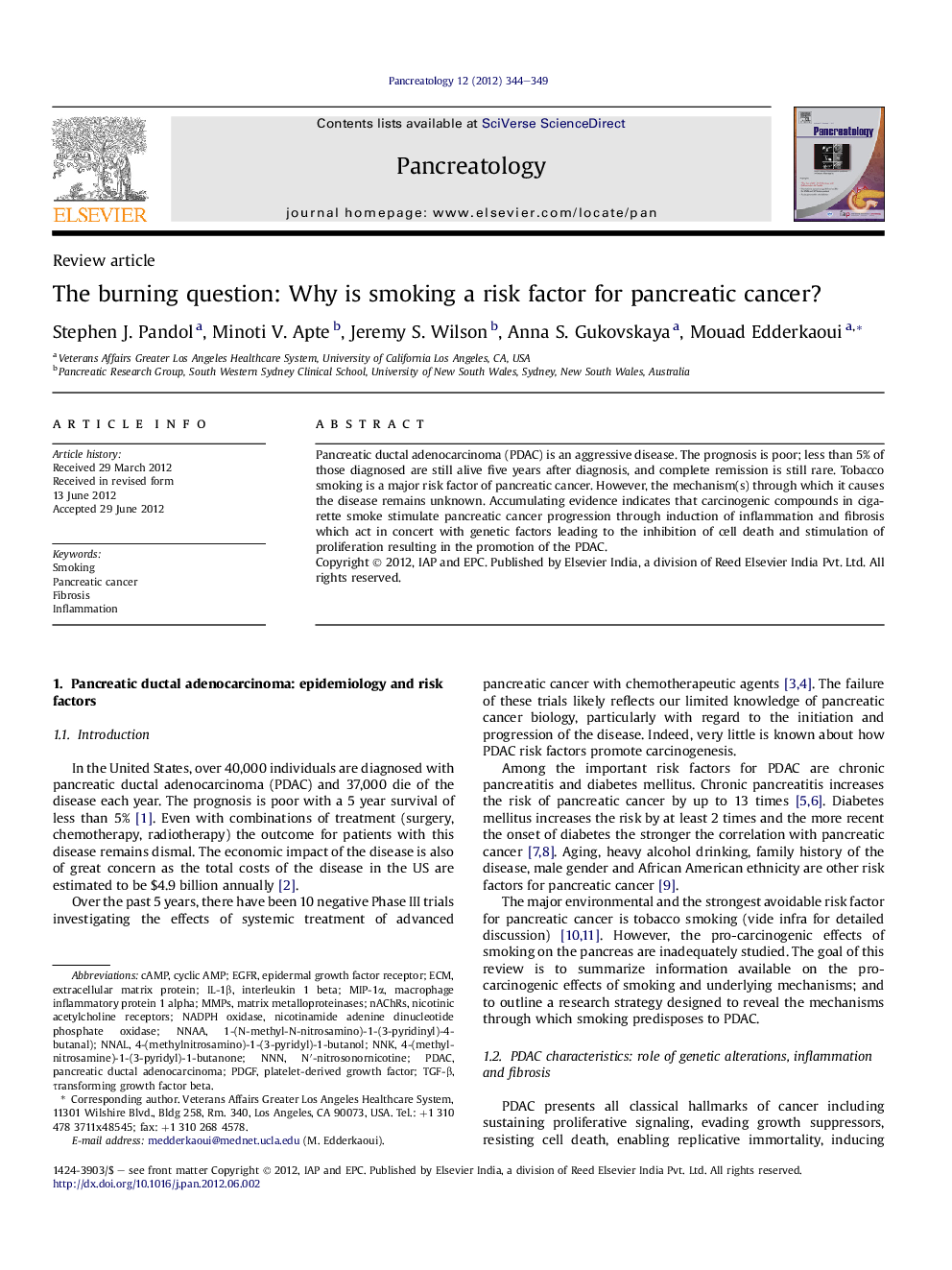| Article ID | Journal | Published Year | Pages | File Type |
|---|---|---|---|---|
| 3317401 | Pancreatology | 2012 | 6 Pages |
Abstract
Pancreatic ductal adenocarcinoma (PDAC) is an aggressive disease. The prognosis is poor; less than 5% of those diagnosed are still alive five years after diagnosis, and complete remission is still rare. Tobacco smoking is a major risk factor of pancreatic cancer. However, the mechanism(s) through which it causes the disease remains unknown. Accumulating evidence indicates that carcinogenic compounds in cigarette smoke stimulate pancreatic cancer progression through induction of inflammation and fibrosis which act in concert with genetic factors leading to the inhibition of cell death and stimulation of proliferation resulting in the promotion of the PDAC.
Keywords
N′-nitrosonornicotineEGFRTGF-βNNNMmpsNNKNNALMIP-1αPDGFIL-1βnAChRsECM4-(methylnitrosamino)-1-(3-pyridyl)-1-butanolcyclic AMPcAMPPancreatic ductal adenocarcinomaPDAC یا pancreatic ductal adenocarcinomainflammationNADPH oxidaseinterleukin 1 betaPancreatic cancerSmokingplatelet-derived growth factorFibrosisMatrix metalloproteinasesnicotinamide adenine dinucleotide phosphate oxidasemacrophage inflammatory protein 1 alphaExtracellular matrix proteinEpidermal growth factor receptornicotinic acetylcholine receptors
Related Topics
Health Sciences
Medicine and Dentistry
Gastroenterology
Authors
Stephen J. Pandol, Minoti V. Apte, Jeremy S. Wilson, Anna S. Gukovskaya, Mouad Edderkaoui,
